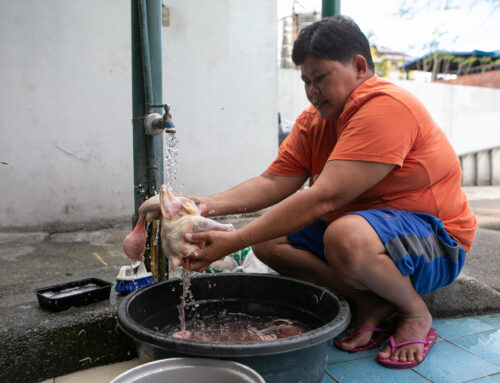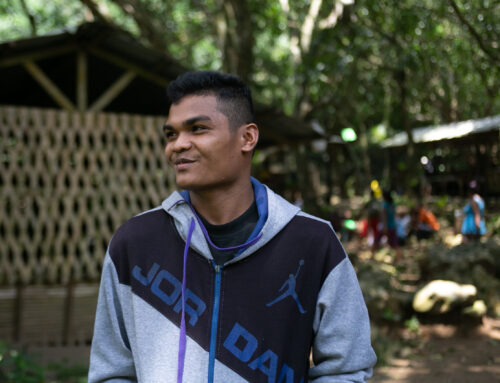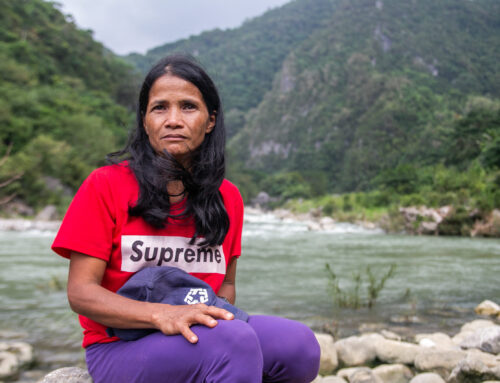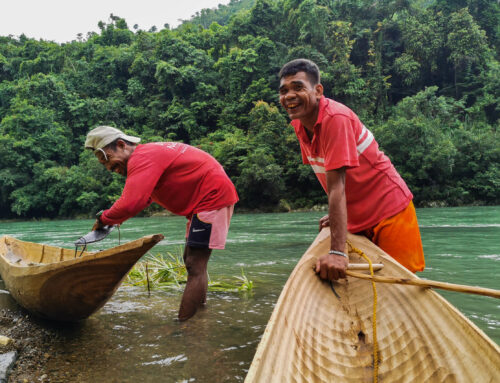“This made me realize the value of water. Water is life. It is important that we ensure that people have constant water supply.
Mike Santos
OIC Barangka Drive, Mandaluyong City, Metro Manila
Writer and Photographer: Gigie Cruz
I am Mike Santos, officer-in-charge in Barangka Drive, Madaluyong City. I was born and raised here. There are around 52,000 residents in our barangay, seventy-five percent of these are registered voters under our jurisdiction.
Four or five months ago, our barangay experienced a water crisis. The whole city of Mandaluyong was gravely affected by the “water crisis.” As leaders of our community, it is but natural that residents would rely on us for help in addressing the problem.
We helped by using the barangay’s fire truck in distributing water to residents affected by the water shortage.
We normally began with our water rationing before nine in the morning and finished at 11 in the evening. We ensured that water was supplied to everyone who asked for it. Our dire situation, in regard to lack of water, was reported on the news.
There were times when residents were easily angered despite our efforts to bring water to their community. This could be because they were getting impatient over the situation. There were times when they would assume that the trucks would not return once emptied. There were even instances when residents would fight over water while queuing up. The situation brought the worst out of the residents who, seemingly, lost their discipline.
Some residents would even go to the barangay to report disagreements with their neighbors. There were some cases when altercations ended up in physical injuries, but we tried our best to mediate to avoid such incidents. We tried our best to understand their emotions, due to the difficult situation we were in during those times.
This made me realize the value of water. Water is life. It is important that we ensure that people have constant water supply.
It was very challenging. Water is very important to everyone. During the water shortage, there were limitations. Water is necessary for taking showers and other personal hygiene. We need water in food preparation, in washing our dishes, and flushing our toilets, among other things. The lack of water made these very challenging.
Fortunately, through the help of other barangays, we, the fire volunteers, were able to respond to the call of the people. If water in our barangay’s fire truck was insufficient to provide water to the residents, we would ask for help from Mandaluyong City’s command center to supplement our need.
There were rationing schedules for each street. Long lines would be seen as residents patiently queue with their water containers.
We also needed to limit the amount of water supplied to each resident. We only allowed a maximum of five-gallon containers for each resident. We did not accommodate filling up big drums of water, in order to ensure that everyone got a fair share.
Barangka Drive could be one of the hardest hit areas during the water crisis, but other places were also affected by the shortage. During this, waterflow from the tap was very minimal, if there was any at all. The amount of water was insufficient to fill up three containers in a day. There were times when residents could only collect around one to four liters of water in an hour.
We were quite fortunate for having other sources of water outside our barangay. We were allowed to get water from fire hydrants to distribute to our constituents. But these weren’t potable and were only used for showers.
The water crisis lasted for about a month to two months. The city of Mandaluyong was gravely affected by this.
Through God’s mercy, the incident didn’t happen again. We currently have rationing in the barangay, but Manila Water, the service provider in our area, issues warnings and reminders to our barangay. The scheduled water interruptions are announced to residents through our public announcement system or through social media.
People didn’t really give value to our water resources before. We can actually use water from rinsing vegetables and washing dishes and from our laundry to flush our toilets. There could be a lack of information dissemination from the government to remind people about the value of water. There’s a common misconception that our dams and water reservoir would easily fill up during the rainy season, but the levels normally go down during the dry season. I hope the government will pay attention to water conservation. I hope people will help conserve water.




